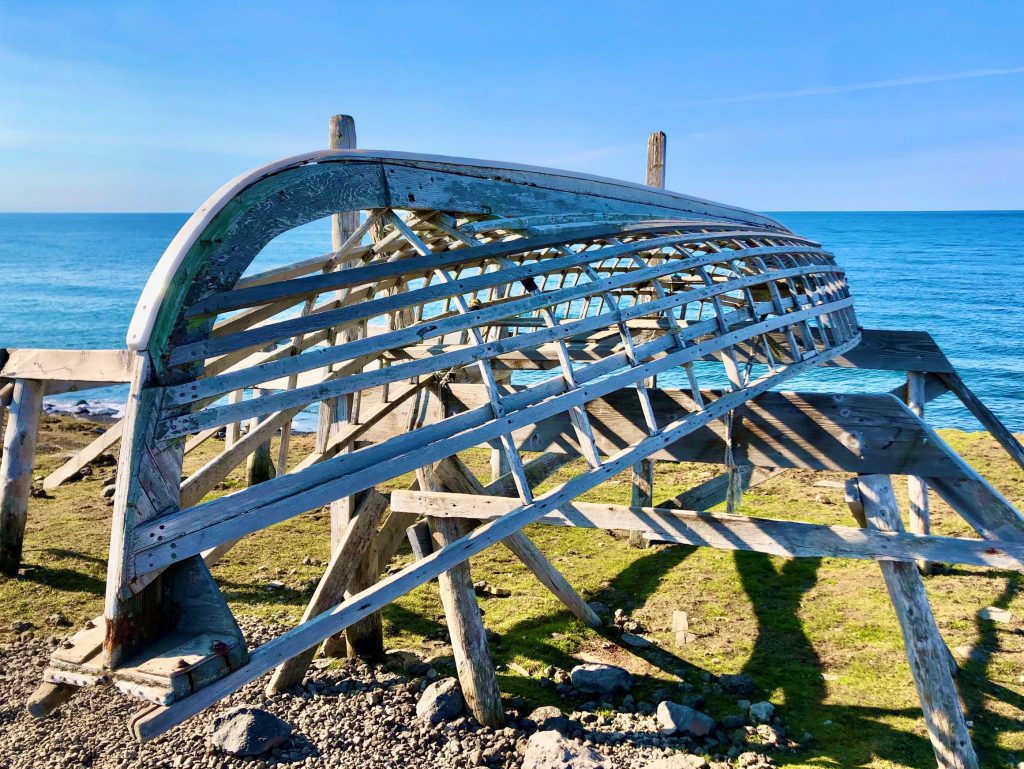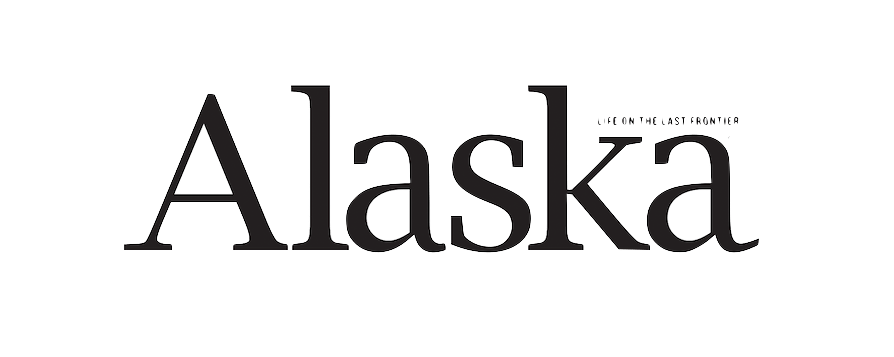Vera Metcalf in Savoonga with her family. Courtesy Vera Metcalf.
Vera Metcalf was born and raised in Savoonga on St. Lawrence Island. Since 2002, she has been the executive director of the Eskimo Walrus Commission, which represents 19 coastal communities to co-manage the Pacific walrus population alongside federal agencies. Her mentors were Matthew Iya and Caleb Pungowiyi, both former directors of the EWC. She was inducted into the Alaska Women’s Hall of Fame in 2019 for her work protecting the subsistence lifestyles and traditions of Alaska Native people. ~ as told to and edited by Alexander Deedy
What are the biggest challenges facing people harvesting walrus?
We’ve experienced avian cholera in our birds and die offs. Harmful algal blooms are a new thing. We’re concerned about the health of our marine mammal resources, because people say 80 percent of our diet comes from marine mammals. We are so reliant on these resources as part of our sustenance, but other changes in our environment potentially will affect their health. We’re concerned about consuming these resources when unusual events happen in our waters.
Climate change is a big factor. When sea ice conditions are not suitable for hunting, we have to travel farther to find good ice. All these factors are challenges, but we do all we can to continue.
You work with federal agencies and communities across Alaska, and also internationally. When it comes to food security and subsistence, what sort of collaboration does that require on an international level?
The Pacific walrus population is a shared resource between the U.S. and Russia. So naturally, we have people across the waters who harvest the same marine mammal resources that we do here. Through this shared resource, we’ve been able to collaborate with their hunters and other people who are involved. We’re just separated by this invisible line, but we remain connected. They’re concerned about the same issues that we are.
Is there anything that’s a priority for the walrus commission to change?
We always say that harvesting resources is like a full-time job. To take care of your family living out in these communities, it’s not easy. It’s a continuous job. It’s not sports hunting. It is not like going out and planning for the day. It depends on open water. Is it safe to go out? Those things are still not understood well. Our hunters are not paid to go out and harvest. They risk their lives to go out in environments that may change in a couple hours. For example, it’s a full-blown blizzard today [in April].
Is there anything that could help support them in that?
Here in the Nome region, we have the Norton Sound Economic Development Corporation that allows subsistence fishermen to harvest halibut commercially, and then harvest again for subsistence purposes. They get compensation. They get paid for it. Maybe that’s a model to consider for other species
we rely on.

Most of the hunters in the 19 member communities for EWC, when they go out hunting, they’re not just hunting for themselves or their immediate family, they’re providing for a larger portion of the community. Is that correct?
We’re very big on sharing. Not only does walrus or bowhead whale that’s harvested get shared within the communities, I bring it here and share it with others that may not have access. Or bring it Outside, Anchorage, elsewhere. Sharing is a big part of our lifestyle; we have to share food. And it tastes so much better when you have it with others. I mean, don’t you agree? You work so hard to harvest something when you eat it with others, it tastes so much better.
We’re taught to share, especially with those that are single parents or elders. We’re lucky to have that, still to this day, and it’s a good lesson for the younger generation to understand the proper way to harvest marine mammals and also this protocol that we have to share with others.
Thanks Vera. Is there anything else you wanted to add?
One thing I wanted to end with is that I’m a female working in an environment that is male dominated. Hunters, most of them are men. We’re from a clan-oriented situation out on St. Lawrence Island, so I have to make sure that I represent my clan when I’m talking in front of people. I’m not here to speak about myself, but I’m representing my family, my elders, and people that have been instrumental to knowing who I am. So, I’m in a unique position being a female in an environment that is considered male dominated. I am thankful to have this work. It’s close to my heart. I have a big family and I hope I represent them well anywhere I go. Because it’s not about me, it’s about them.


Comments are closed.